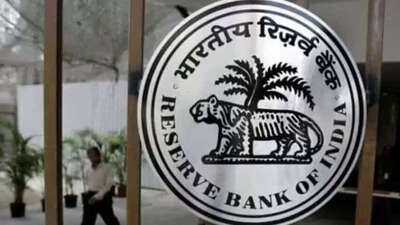Morgan Stanley believes that the central bank will keep interest rates unchanged in its upcoming August MPC meeting, but has said that due to excessive softening in inflation, the possibility of cutting interest rates in August has increased.
Global brokerage firm Morgan Stanley said that the Reserve Bank of India (RBI) may cut the repo rate by another 25 basis points (bps) in its October Monetary Policy Committee (MPC) meeting. The reason for this is the fall in inflation. However, Morgan Stanley believes that the central bank will keep interest rates unchanged in its upcoming August MPC meeting, but has said that due to excessive softening in inflation, the possibility of cutting interest rates in August has increased.
Inflation has been below 4 percent since February.
In its latest research report, Morgan Stanley said that Consumer Price Index (CPI) inflation has been continuously below 4 percent since February this year. For the first half of calendar year 2025, inflation averaged only 3.2 percent, compared to 5 percent in the same period last year. Retail inflation fell to 2.1 percent year-on-year in June, the lowest since February 2019. At the same time, wholesale inflation has also entered mild deflation territory.
No change in repo rate expected in August
The global brokerage firm said in the report, mixed signals from falling inflation and economic growth data have triggered fresh discussions on easing monetary policy. Morgan Stanley expects no change in interest rates in the August meeting, but believes that the RBI may wait for more data on growth trends before taking any further steps.
Inflation forecast stable for next year
According to the report, there has been a major reduction in inflation in the near future and the inflation forecast for next year remains stable. Due to this, the central bank may make another cut in the repo rate in October. The report said that food inflation has now entered the deflationary zone, which was one of the major contributors to the overall price rise.
Food prices declined by 1.1 percent in June, the first decline since February 2019. This is mainly due to the high base of the previous year, strong crop production and better weather conditions. According to the report, on the policy front, the government has played an important role in reducing food prices by imposing stock limits on essential commodities like wheat and pulses, selling wheat in the open market and providing subsidized vegetables and pulses through the Bharat brand.
You may also like

Indian man seeks asylum in Canada, claims 'murder framing' in Haryana; 200 others told the same story

Matt Fitzpatrick attacks Scottie Scheffler with mind-games as duo lead The Open

Gardeners urged to check 5 flowers as UK faces drought

MasterChef's new hosts 'revealed' after Gregg Wallace and John Torode scandal

Arsenal now have secret weapon to complete Xavi Simons transfer after announcement made







